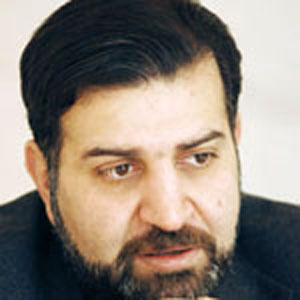US threats will derail Iranian nuclear talks

The backdrop to the resumption of talks saw rumours that the “5+1” powers – the US, Russia, Britain, China, France and Germany – were preparing to offer Iran a deal. The details of this have not been made public, but reports suggested that it would demand Iran do three things: first, ship a large amount of low-enriched uranium out of the country; second, halt the processing of more highly enriched uranium; and finally go back to negotiating table on the future of its nuclear programme.
Iran has not yet reacted to this potential offer. Previously Iran’s top nuclear negotiator asked for clarifications on how any future talks would work – for instance on whether Israel’s nuclear programme would be on the table, or whether other countries could take part, beyond the “5+1” group currently meeting in Geneva. But beyond this, Iran is ready to talk.
Indeed, Iran feels that a fair process of negotiation can help it achieve its objective in these talks, namely the ability to exercise the rights to use nuclear material that it ought to have already under the current non-proliferation treaty. Furthermore, Iran believes that the international community can be re-assured about the nature and intent of its nuclear programme if open discussions take place between both sides. In short, there is a genuine chance of a good outcome.
However, certain guidelines must be followed if the process is to work. Both sides know each others’ positions, so there is little point introducing pre-conditions before talks begin. A process in which one side sets pre-talks conditions, and then the other is forced to respond in kind, threatens to derail the process before it begins. Neither side will lose if they show flexibility, and agree an open agenda.
More fundamentally the US and its allies must reconsider their old “carrot-and-stick” approach. Despite its existing unilateral sanctions, the US has of late been pushing other countries to sever their economic ties with Tehran. Now new additional sanctions are threatened in the event of the current talks not bearing fruit, including another set of sanctions at the UN. This is unhelpful. Tehran supports the current talks, but reference, directly or indirectly, to more punitive measures will be taken as a sign of enmity against the Iranian people. Even hinting at these new sticks will damage trust and undermine the talks before they begin.
The same is true on some of the specifics of negotiations. Iran, for instance, needs a more enriched form of uranium for its research nuclear reactor. It ought to be able to buy this material under the current treaty. The world powers, however, have refused to sell, for fear that it will be used to make nuclear weapons. Instead, they are likely to demand that Iran ships at least 2000kg of less-enriched uranium abroad, and only then provide the material it needs.
This makes little sense. The negotiators know Iran previously rejected a tentative deal, reached in Vienna in 2009, to send only 1200kg abroad. Meanwhile the US and others rejected a different deal, in May 2010, between Iran, Brazil and Turkey to ship the same amount, before rushing to the UN to demand more sanctions.
For its part, Iran is prepared to go for some sort of a swap deal. However, the world powers know that 2000 kilograms would produce much more enriched uranium than Iran actually needs, leading to the obvious conclusion that this figure is simply being used as a bargaining chip to remove as much uranium from Iran as possible. Here the US and its allies must realise they cannot just call for the removal of more uranium without offering anything in return.
In the course of the talks, both sides can develop a mutually acceptable compromise on this and other issues. This should include the circumstances under which sanctions would begin to be removed if Iran agrees a deal, a priority for Tehran. But it remains unhelpful to specify in advance what the parameters of any part of this final deal might be.
In all of this, Iran wants a sense that it is respected as a part of the negotiations. Success is possible, if space is provided to develop a deal suitable to both sides, while providing security guarantees and recognising Iran’s legitimate role and interests in its own region. But the threat of fresh sanctions, unveiled with the shaking of a fist, will damage the slender chances for peace, and threaten negative consequences for the whole region. It is therefore of utmost importance for the two sides to lower their rhetoric, as the talks continue. Neither side will win if this round of discussions fails again. But both will certainly lose if it never get off the ground in the first place.
The writer is a former Iranian diplomat who twice served as deputy foreign minister, and also as ambassador to France and the United Nations
This article was originally published in Financial Times on December 6th, 2010.

